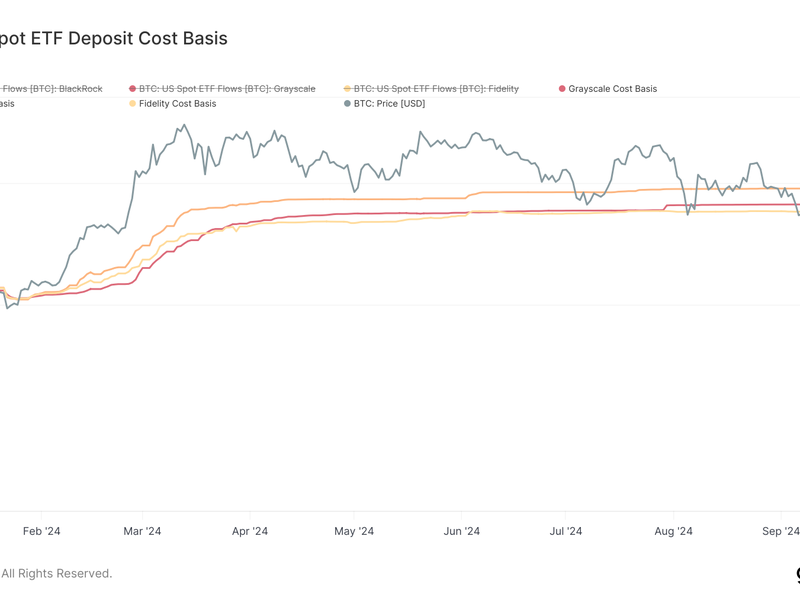Hong Kong’s New Crypto License Could Cost Exchanges a Pretty Penny
-
Tough requirements and high costs for applicants could weed out smaller companies.
-
Platforms are able to serve retail customers, which may give institutional investors more confidence to enter crypto markets.
Crypto exchanges may have to shell out as much as $20 million for an operating license in Hong Kong under the city’s new regulatory regime, which came into effect in June.
The new licensing regime for virtual asset trading platforms gives exchanges with a presence in the city one year to apply for fresh approval or leave.
So far, exchange platforms OSL and HashKey, who held licenses under the previous opt-in regime, have obtained received approval under the new regime, and are now allowed to serve retail investors.
However, three individuals familiar with but not allowed to speak publicly on the application process told CoinDesk that obtaining a new license could cost anywhere between $12 million and $20 million.
Their estimates took into account operating costs leading up to the license and payments for necessary vendors for the application itself, including consultants, lawyers and insurance providers.
OSL and HashKey are part of larger financial services groups and may have the funds to spare, but the cost of consideration under the new rules will be prohibitive for many firms.
Licensing consultants can charge up to $1 million to advise companies on the application, a person familiar with the matter said. Exchanges are required to maintain a paid-up share capital of 5 million Hong Kong dollars ($640,000), and liquid capital of at least $380,000. They must hold liquid assets equivalent to at least a year of operating expenses, not counting virtual assets.
Companies will have to invest in capabilities that ensure segregation of client funds, safe custody of assets, pay for smart contract audits and overall corporate governance. Before onboarding investors, firms will need to assess their knowledge of virtual assets.
Firms must also have a local presence with seed phrases and private keys (with backups) stored in Hong Kong. They must hire compliance officers known as licensed responsible officers (ROs), to make sure the business meets the regulatory requirements, and each applicant is required to have at least two ROs. ROs typically charge a premium for their services due to high demand.
“We will have this natural selection of players in the market,” Alessio Quaglini, CEO of Hex Trust, told CoinDesk. Hex Trust is planning to apply for a Hong Kong license for its own exchange HTX.
The announcement of a licensing regime has prompted a rush for applications but industry members know that not all will meet the regulator’s benchmark.
SOMA.finance Co-Founder Will Corkin said that small exchanges that might not have large trading volume or don’t have a track record of doing things the right way are “up for a pretty difficult battle” to get licensed.
Robert Zhan, KPMG China director of risk consulting, pointed out that only eight banks attained virtual bank licenses even though there were “a significant number of parties” interested.
Zhan explained that the Securities and Futures Commission has shared its “minimum criteria” for applicants. As well as meeting those requirements, applicants need to ensure they are “presenting the strongest possible case to support their application,” Zhan said.
Despite China’s ban on its own population trading virtual assets, Hong Kong’s residents have the implicit go-ahead. Conferences have started again in the city, with attendees flying in from Singapore and Dubai to see if Hong Kong is truly open.
“I’m sure that was not easy,” Stratford Finance CEO Angelina Kwan said, referring to Hong Kong getting approval to be China’s regulatory sandbox for digital assets. However, Hong Kong functions as a sort of testing ground for other forbidden activities on Mainland China. Hong Kong is home to international capital markets and allows betting on horse races (Chinese citizens cannot directly invest in overseas stocks and gambling is banned).
Meanwhile, the city’s leaders mentioned Web3 in the budget, formed a Web3 task force, and the government’s promotional arm, InvestHK, is present at almost every industry event. A local politician has invited exchanges globally to apply for licenses.
The hope is that once platforms begin to obtain licenses, investors can move fiat currency from banks onto trading platforms, trade in fairly liquid markets, and have exposure to virtual assets.
“People want to have the Securities and Futures Commission, regulatory bodies like that, behind them,” Corkin told CoinDesk.
“The 2017 days of opening up exchanges based out of small European countries doesn’t really hold the same as it did back then,” Corkin said.
Holding licenses issued by a globally respected financial regulator means that licensed platforms are far more likely to meet internal standards of investment firms, thereby allowing for more capital to enter.
Allowing retail traders to use platforms may also give institutional investors confidence, since regulators tend to set the bar higher for retail investors to enter.
The biggest fanfare has been made about the regime’s allowing platforms to serve retail investors. Retail trading has been going on in Hong Kong in a gray area with investors turning to global exchange Binance and buying NFTs on OpenSea (the latter remains unregulated).
But derivatives, the largest money-maker for exchanges, are still off the cards. The regime will only permit investors to trade large-cap coins.
Tokens will need to be listed in two acceptable indices, and go through due diligence. They will need to have a one-year track record. The background of developers will be checked, as will supply, demand and liquidity.
Under the regime, platforms cannot choose external custodians. They must handle custody themselves. One of the heaviest requirements on platforms is that they must have insurance or compensation which covers the potential loss of 50% of client virtual assets held in cold storage.
Quaglini said that this cost will be borne by loss-making companies, or the end user who has the option of using offshore exchanges.
In his view, there should be a few credible institutions specialized in custody that can bear insurance costs. A few specialized players would mean they can operate a profitable business.
“It’s going to be very hard to create competitive players,” he said.
Kwan, who used to work for the Security and Futures Commission, explained the regulator’s requirement on exchanges handling their own custody as needing to know who to hold accountable. “It’s one throat to choke,” Kwan said, also pointing to potential security risks with connectivity.
Since crypto exchanges are required to have ties to a bank in order to apply for the license, Hong Kong’s de facto central bank, the Hong Kong Monetary Authority, has been holding roundtables inviting banks and virtual asset players to attend, the first in April and another in June.
Companies have found it difficult to maintain reliable banking relationships, with some fearing that even if they manage to open accounts, they may be closed down. Consultancies have been giving presentations to compliance teams in banks to bring them up to speed on what risks to look for.
Finding the right insurance and even a provider has also been an issue for applicants. Kwan said that some companies wrongly end up buying specie insurance rather than comprehensive coverage or fiduciary liability insurance.
Like the banks, insurance companies are also unsure about working with crypto.
Annie Hui, co-founder of digital asset security firm Custonomy said that she hopes that, as the guidelines are refined, that proof of solvency will be integrated into the regime. This would mean that platforms have in place mechanisms to prove that the total amount of assets held in custody is larger than the total amount of liabilities.
Stablecoins are not permitted so far. OKX global’s Chief Commercial Officer Lennix Lai said their unavailability for retail trading was a “temporary arrangement” and added he is “cautiously optimistic” that they will be made available, once the HKMA issues its conclusions on stablecoins. Whatever happens, it is clear that algorithmic stablecoins like the now defunct terraUSD will not be allowed.
Edited by Nikhilesh De and Sandali Handagama.









